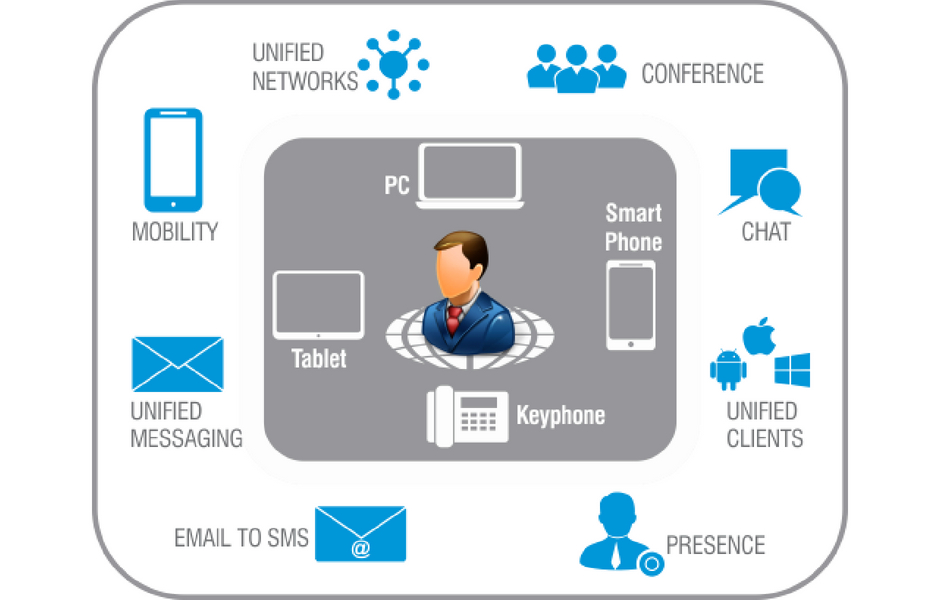
Todays’ flexible work locations require 24X7 connectivity that is not confined to one office or address. At the same time, a person can be contacted through various means such as calls, emails, fax, etc. therefore it is now essential than ever to unify our communication endpoints for easy management.
The 21st-century workforce is thriving on Unified Communications (UC) and its applications. For example, try to recall your everyday journey to the office. You move out of the house with your smartphone in hand, probably going through emails on it. You catch the subway, if space and time permits, you feel like opening your laptop to revert on emails. Meanwhile, you receive an ample amount of calls on your smartphone, mostly related to office work. You practically start working even before you have reached the office. But you must be wondering where did UC come in the picture here? Well, that is the whole idea of UC, it becomes a part of your day-to-day life by integrating with the apps you use daily.
Before we go into the benefits of Unified Communication, let’s first figure out what does it mean exactly.
Unified communications refer to the well-established technology which brings
different communication mediums such as call, texts, emails, etc. on a single platform by integrating
them.
In addition to this, it is loaded with features that enhance mobility, data sharing, desktop
sharing etc. making business communications efficient and quick.
Benefits of Unified Communications:
- Mobility: Today’s workforce is mobile and rarely found working from one location.
Many times, it is also possible that they are in three different countries during a
period of just three weeks! This poses a big challenge for other team members to
communicate with the mobile workforce. Hence, efficiency and decision making
are often compromised. But not with Unified Communications! With UC, one can
communicate with anyone from anywhere. Furthermore, they can use their own
device to do so by integrating their Smartphone with the Corporate Office Directory.
- Unified Messaging: UC allows accessing Emails, Text Messages, Voice Mails, Fax
and Video Messages from a single device given that all supporting software is present.
With everything in one place, enhance employee responsiveness to customers.
- Unified User Clients: Many organizations are now promoting ‘Bring Your Own
Device’ service i.e., BYOD. One major benefit of this service is that users do not
have to get accustomed to office desk phones. One can integrate Laptop and Deskphone
with their Smartphone and all functions can be performed across all devices. - Single Number Reach: We are surrounded by tons of communication mediums –Phone calls, Emails, Text Messages, fax, Social media messengers, Video Conferencing
apps, etc. Even after all these mediums, it sometimes becomes impossible to contact a
person simply because you do not know which medium to contact them on! |
Also, in this dual sim smartphone era, it is highly likely to have two or more contact
numbers, making the communication process tougher!
To simplify this, Unified Communications offer Single Number Reach that essentially
means one number, one identity. With one number, you can access the email address,
the phone number, fax address, and Skype ID. Quick and easy, right? - Unified Network:
Powered with IP technology, Unified Communications can unify various telecom networks. This not only protects the investment by supporting existing
traditional network but also makes the whole process smooth for accustomed users.
Modern UC servers support all major networks such as PSTN/TWT, ISDN BRI, T1/E1
ISDN PRI and wireless network GSM/3G.
As inevitable as it is, UC is the future of Business Communications. These, along with other
benefits make Unified Communications best fit for modern enterprises. In a world where
customers start forming a brand image from the first interaction itself, it is extremely
important to deploy a communication system you can rely on. Confused about where to start?
drop us your query on mail.
